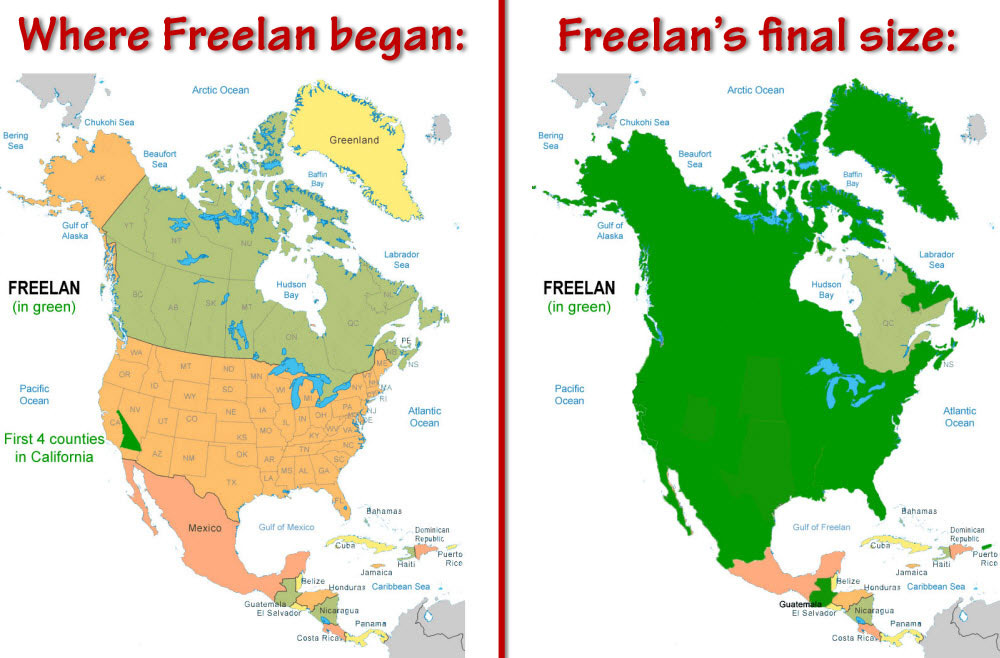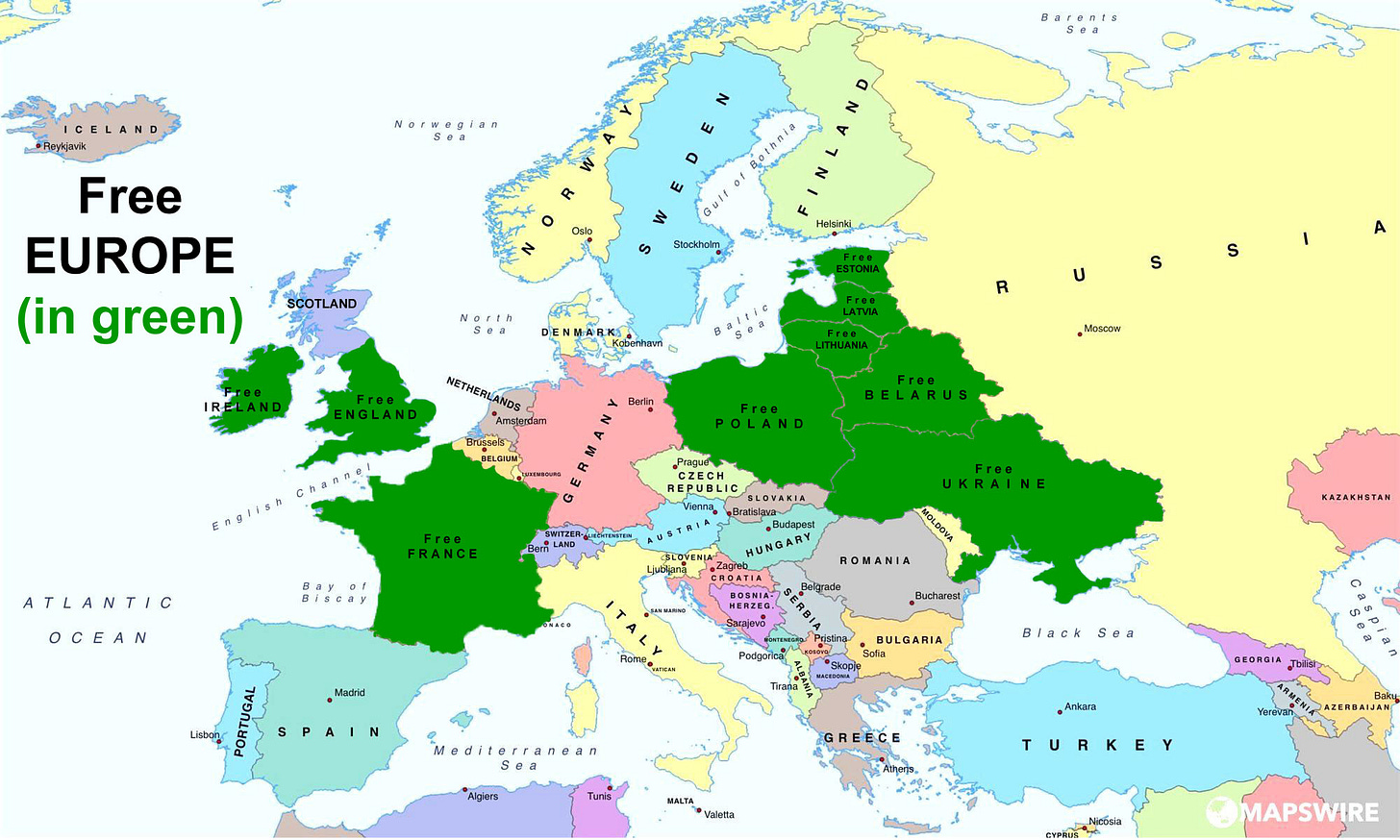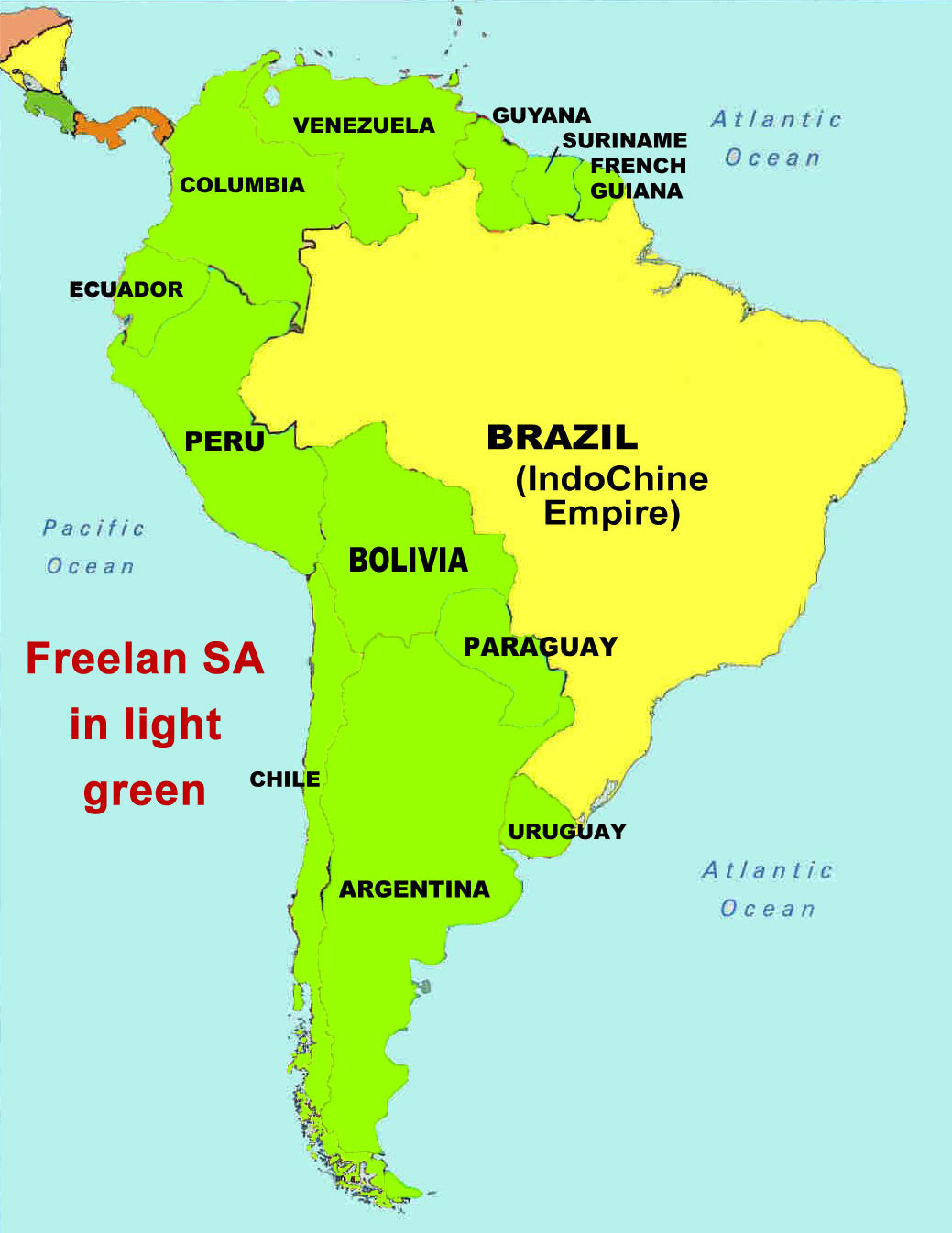A Different Kind of World Building in Literature
It's not just for fantasy and science fiction!
When we hear the term “world building” in relation to literature, the fantasy or science fiction genres are most likely to come to mind. That’s natural. However, there is a different kind of world building in literature. (Generally speaking, all fiction creates its own world.) And it is one that we have seen in novels such as 1984 and Animal Farm by George Orwell. In my Freelan novel series, currently in progress, I take the Orwell route, that is, creating a new nation with a new form of governance.
See my article: Publisher Agent Fiction Genres Defined (complete with downloadable PDF).
What Is World Building
This is simply what it says, that is, creating a fictional world in your fictional work. That world will include one or more of these elements: entirely new and unique location (may or may not involve drawing out a map for yourself or your readers), exotic or alien creatures (sentient and otherwise) and plants, new terms or even a new language (translated for the reader), different societies, new belief systems, different governments, and new technologies.
The writer creates this world first, having it clear in his/her mind as a guide for the writing. The world need not be described in detail in the fictional work (novel, short story, etc.), but enough should be described to give the reader a clear idea of that world and to capture the reader’s imagination. Even so, the writer must have the world firmly in mind in order to give it authenticity in the fictional work and to get the reader immersed in that world, suspending disbelief and becoming fully engaged with the structure of that world.
How This Works in Non-Fantasy/SciFi Literature
We writers who want to create a new world but not one associated with fantasy fiction or science fiction have to be rather careful. The location has to be in this real world but with unreal elements. That means changing country names or simply how they operate. Stay away from those alien creatures, too. But go all out on things like those different societies, belief systems, and governments. You can even sneak in new terms and technologies. You have to make them clear and a part of your plot. You also have to be consistent in applying those elements as you write. I, for instance, keep forgetting that Freelan has a different form of money, no dollars. I also have to keep track of when certain new technologies are introduced. Privata, for example, comes up in the second part of Freelan: the Dawning; it is a competitor to the internet, so any reference to a site has to say “Privata site.” Fortunately, so far I have been able to catch these errors during my editing process.
The World of Freelan as an Example
In the Freelan series, the world is Earth. The part that is Freelan starts out with four California counties shown on the left in the image below becoming a new state (as described in the 3-part novel Freelan: the Dawning). That state continues to grow as other parts of California and the United States join it, and then that state becomes a new nation. That new nation also continues to grow through the early books of the series to the final size shown on the right:
A big idea starting out small and growing.
During the growth of Freelan from that state into a robust nation, freedom extends into Europe:
And then South America gets the freedom bug, with only Brazil holding out and clinging to its ties with what has become the IndoChine Empire, encompassing most of Asia, the middle East, and the African continent:
Freelan has a minimalist government with a strictly advisory council, a judiciary, and a defense system that incorporates new technologies along with traditional ones. The society is composed of people living their lives and working to preserve their freedom against an organization bent on world rule. As for belief systems, they are seen as a matter of personal choice, one that the believer can pursue without interference but not force on others, since that would violate the individual rights of those others. No magic, no Martians or elves, and no out-of-this-world locations, yet the reader is taken to another world.
Final Note
Start out with the idea that you are taking your reader into another world, even if the setting is real such as New York City. Pay attention as you write to that world, believe in it as if it were real, and you will have your readers believing, too, and coming back for more.
Hope you found this helpful and have been inspired to start and/or continue writing!
Please check out my works in progress (WIPs). And thanks for reading.
A Few Resources
Worldbuilding: How to Create Rich & Engaging Fiction Worlds (on self-publishingschool.com)
How to Write a Believable World: A Guide to Worldbuilding (on masterclass.com)
A Step-by-Step Guide to Immersive World Building (on jerryjenkins.com)
A Guide for Successful World-Building in Fiction (on Medium.com)
15 Worldbuilding Tips for Writers (Templates and Examples) (on kindlepreneur.com)
Disclaimer: I get no compensation for links in this post or on my site to other sites and/or products.







Hello,
I’m a 37 year veteran currently employed at an Infantry training institute in Oregon. As the Operations Officer, I am required to design training scenarios based on the Army’s Decisive action Training Environment (DATE) principles. From there I gradually started volunteering my time and energy to an international disaster relief agency called ShelterBox.
They needed a training environment that simulated a post-earthquake disaster scenario, and they wanted to use the (politically sensitive) imaginary land of Cascadia. So I built that for them, here’s the link: https://www.cascadia-smartbook.com/
I haven’t written any stories about Cascadia yet, but I intend to.
It’s been 4 months since you posted this article, but if you’re still interested in the subject (or know anyone who is) I’d love to discuss world-building with them!
Thank you for making this post